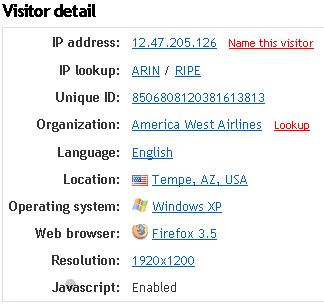
Have you ever wondered how there came to be so many Internet marketing experts and search engine optimizers in the world? My guess is because it is so darn easy a caveman could do it. At least it seems that is what they were told back at marketing school.
I love marketing. It is the only reason I watch the Super Bowl. I love to see great marketing, and to watch companies take off like an eagle. The unfortunate reality is that unskilled marketing flies with all the grace of the dodo bird.
I want to share two extreme examples of marketing failure I have recently been assaulted by. I received each of these in just the last few hours, and they come in great abundance each and every day. I think these examples explain a lot about why I encounter so many people skeptical about their marketing efforts. It is this kind of marketing that damages my whole industry.
Marketing Fail One: “Mould Providing”?
I will start with an email message I received only a few hours ago offering to sell me molds. Molds? Yes, molds! Why somebody would try to sell me molds is way over my head. This marketing failure was not only way off the target audience, but they even spelled the product name differently (language variance) in the subject line and body of the email. Then they went on to write the email as if they were the SEO just out of search engine optimization school trying to make the most of their keywords. I guess they needed to search engine optimize their email for some reason. Needless to say, I will not be purchasing any molds (or moulds either), so don’t even go there!
This goes well beyond just a language or cultural barrier, so before you give this “Marketing Engineer” a break, consider how he and millions of other spammers like him damage the marketplace for others. They collectively hinder the attention span and trust of each of us and make us more stubborn about our marketing expectations.
Dear Sir/Madam,
Our company, King Mold Limited is located in Shenzhen City Guangdong province of China. We are middle size of mold maker company and about 100 machines in house. We made about 500 molds last year and 90% molds were exported to Europe, North American and other oversea areas.We are able to make small and simple molds, big and complex molds, we have made some insert molds, overmolds, two shot molds, gas assistant molds, unscrewing molds, hot runner molds and complex molds with many sliders drived by hydraulic cylinder.
Thank you for your time in advance. Your prompt attention will be highly appreciated!
Sincerely yours,
Tony /Marketing Engineer
You may be curious how Tony the Marketing Engineer targeted me for this brilliant marketing campaign. Yes, I was curious, too. You know, I love tracking things, because I am a marketer. This particular marketing failure came by way of email addressed to “thebigcheese@veryimportantguy.com” which is an address that I used in only one place … ever. That was in a blog article I wrote at “Mobile – Local – Social” titled “Cc: How Social Media Killed Email“, and I knew at the time some email spiders would come and scoop up the email address.
Marketing Fail Two: First Page Google Listing
First, I want to explain that this email came from my contact page here at aWebGuy.com and the sender had to pass a Captcha form to send it. What makes me want to reach out and ring the collective neck of this form of marketing “expert” is that it has lead a lot of people to really think of search engine optimization (SEO) as a joke. Here is the email I received:
I wonder what, exactly they would like to get me ranked on the first page of Google with. Maybe the term “how to sell SEO“? Oh yeah, but I am already ranked in the top two for that search, and it has nothing to do with spamming people. I am already there for about a squillion competitive industry terms. I mean, it is what I do professionally. Maybe they can get me on the Google home page just under the logo … how much does that cost?
What really drives me nuts about this is that although it separates the good SEO and bad SEO, it still gives a lot of companies a real reason to hate people in my industry. It makes it even harder to overcome that disgusting image of some fat un-bathed guy in a pair of filthy nylon boxers sending out email and tweeting some crap about his new “earn money fast online” scheme and how he is the real deal and he can make your company successful overnight.
Screw it … I think I’ll go back to bed. My head hurts from thinking about it. If you leave me a comment, that is fine, but I am not buying any damn SEO or molds, so put it out of your mind right now!
Podcast: Play in new window | Download






